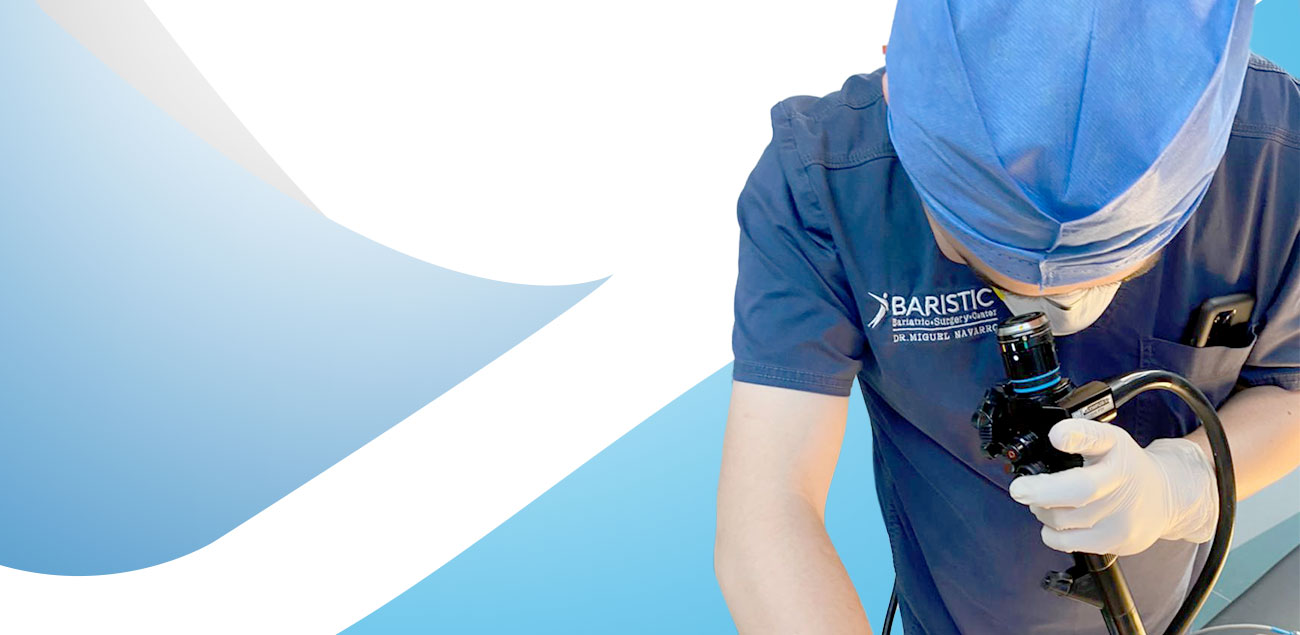
You could prevent these issues after bariatric surgery
Any type of surgery has risks, and as with any stomach operation, weight loss surgery is considered major surgery and just as it has benefits, it also has its complications associated with it.
However, this does not mean that it is a fact that after your weight loss surgery you will have these postoperative complications. A strict preoperative diet and correctly following postoperative instructions will make all the difference in your recovery and weight loss process and will help you to avoid long-term complications.
Since this is a major operation, after bariatric procedures, either Gastric Sleeve surgery or Gastric Bypass surgery, some complications may arise over time related to the actual healing process, such as gastric leaks and bleeding.
Leaks
These are some of the most common concerns around bariatric surgeries.
Leaks refer to a specific spot in the stapled stomach that doesn’t scar properly and through which fluid can escape into the abdomen of the gastric bypass patients. If this were to happen, it would be during the first days after surgery, and in rarer cases in the weeks after surgery.
Fortunately, the incidence rates of this issue is only about 1% of all the cases we attend yearly.
As prevention and to ensure that these types of leaks do not occur over time, we always carry out three different leak tests; the first one is applied during the operation, for the second test we use an X-ray study, and the third and final one is done once the patient reaches their hospital room.
Bleeding
Unlike leaks, bleeding is an incident that can happen intraoperative or postoperative, depending on when and where it occurs.
Intraoperative bleeding is an existing risk in any operation regardless of its type: appendix, gallbladder, cesarean section, womb, etc. In all surgeries, there is a risk of bleeding during or after the procedure.
Therefore, it is important to keep in mind that bariatric surgeries are no exception, even after success, since they are major surgical procedures that are performed under general anesthesia.
On the other hand, postoperative bleeding can be caused by other factors such as the patient not following the medical instructions before and after their weight loss surgery.
How can you avoid intraoperative bleeding?
To prevent you from suffering intraoperative bleeding, it is recommended that bariatric patients follow these recommendations:
● Avoid taking Aspirins and any anti-inflammatory seven days before your surgery.
● If you suffer from hypertension, you should not interrupt your medication, not even on the same day of the operation (taking it with a small sip of water).
● Stop taking vitamins and natural supplements one month before the weight loss surgery.
This is how you can prevent postoperative bleeding
As a first step, you must follow a preoperative diet to reduce your food intake. This will help to considerably reduce the fat lodged in your stomach, and as a consequence, it will be easier to manage the tissues, as well as visualizing the veins and arteries that must be ligated during surgery.
Quitting smoking a month before, and four weeks after surgery is also essential and a very important step prior to your operation. Other measures that you should not forget are not to make physical efforts during the first six weeks afterward, and to continue taking your medications for hypertension immediately after the surgery.
The good news is that 90% of postoperative bleeding is manageable with drugs and transfusions. Only in the remaining 10% will it be necessary to return to the operating room to clean clots and tie the bleeding vessel.
Dehydration
This situation occurs due to the insufficient intake of fluids that the body requires after weight loss surgery. It usually happens because people don’t follow directions about the new way to drink that they should follow.
Given the changes by weight loss surgery, when taking large gulps or drinking carbonated drinks, a spasm and pain in the lower part of the esophagus occur. This situation often generates fear and the bariatric patients no longer want to continue drinking fluids, which eventually leads to dehydration.
This can have further repercussions (such as nausea and vomiting) from an imbalance of electrolytes in the blood. When this electrolyte imbalance occurs, IV fluid therapy with electrolytes has to be administered.
How to avoid dehydration
To prevent this from happening to you, follow the instructions from the doctor on the new way of drinking liquids to the letter. Also, you will need to take enough oral electrolytes, which in this case the recommended amount of oral intake is at least 500 or 600 ml electrolytes per day.
Keeping track of how much fluids you drink during the day is also very important. Your daily goal will be approximately 50 to 64 oz, including gelatin, broths, Gatorade, water, and any other liquids included in your postoperative diet. From this daily amount, at least 20 oz should be electrolytes, and the rest should be low sugar liquids.
To be more successful, avoid carbonated drinks, caffeinated beverages, and using straws to reduce excessive air intake while drinking.
Pay attention to these two conditions that frequently appear after bariatric surgeries, especially after Gastric Sleeve surgery
Gastroesophageal reflux disease
Reflux causes a very characteristic symptom that resembles a very annoying burning after eating certain amounts of food. It occurs when the muscles of the esophagus that connect to the stomach have weakened and, therefore, can’t close properly or are disturbed.
Our data shows that about 50% of the patients will temporarily struggle with acid reflux, however, you must know that this suffering decreases as you lose weight months after surgery. Still, all bariatric surgery patients must take antacids for at least two months for the relief of symptoms.
Gallstones
If you have surgery to lose weight (Gastric Bypass or Gastric Sleeve surgery), you may present a gallstone formation. To avoid gallstone formation, it is not a bad idea to contemplate prophylactically removing the gallbladder during your bariatric surgery, although this is not always possible. This would prevent you from returning to the operating room later for an emergency surgery: cholecystectomy.
What are the gallstones symptoms?
Indigestion or pain in the pit of your stomach after eating may be a sign that you have symptomatic gallstones. This discomfort could also appear to the right side below the rib.
If you have these symptoms, you will need an evaluation by a surgeon for detection, and early treatment of the problem to avoid a late complication.
No matter if you are considering or recovering from bariatric procedures like a gastric sleeve surgery or a gastric bypass México, we hope you found the bariatric surgery procedures information of this article useful. Remember to follow your medical instructions and treatments provided by your doctor. Please seek professional assistance if required.
—
Any questions you may have about bariatric surgeries or any of the potential complications mentioned in this article, feel free to send us a direct message through Facebook or Instagram. We will gladly answer it.
Be very careful and remember If you can do it, stay home.







